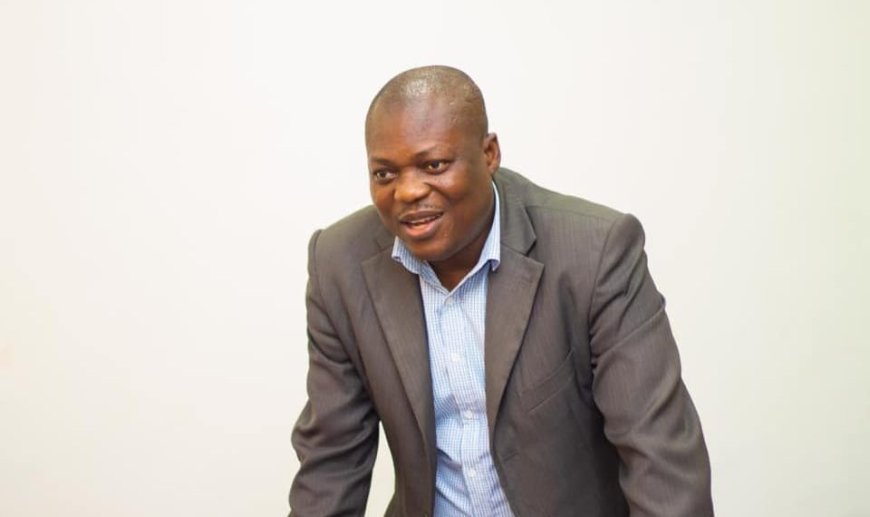Professor Gatsi urges BoG to establish Islamic Banking framework

A finance economist and dean of University of Cape Coast Business School, Professor John Gatsi, has called on the Bank of Ghana to establish regulations and governance structures for Islamic banking. Speaking at the Islamic Finance International Conference 2024 in Accra, Professor Gatsi emphasised Islamic banking’s potential to enhance financial inclusion in Ghana and diversify the country’s bond market.
“Islamic banking will have an added opportunity to deepen financial inclusion, infrastructure finance in the country for both government and private sector. Development finance will also be supported in the country, so I believe this is the time for us to allow Islamic Banking to operate”, Professor Gatsi said.
The Islamic banking expert added, ‘‘the law is as if it allows Islamic banking, but the governance structures are not put in place, the regulations are not put in place. Therefore, it becomes difficult for anybody to apply for Islamic banking license.’’
Talking about Islamic banking, the first thing is to register as a member of the Islamic Development Bank (IDB), just as Ghana is a member of the International Monetary Fund (IMF) and the World Bank Group. This allows the country to enjoy all the benefits including direct investments in Islamic financial institutions in Ghana. Trade finance and technical corporation are some of the benefits that could be extended.
A finance economist and dean of University of Cape Coast Business School, Professor John Gatsi, has called on the Bank of Ghana to establish regulations and governance structures for Islamic banking. Speaking at the Islamic Finance International Conference 2024 in Accra, Professor Gatsi emphasised Islamic banking’s potential to enhance financial inclusion in Ghana and diversify the country’s bond market.
“Islamic banking will have an added opportunity to deepen financial inclusion, infrastructure finance in the country for both government and private sector. Development finance will also be supported in the country, so I believe this is the time for us to allow Islamic Banking to operate”, Professor Gatsi said.
The Islamic banking expert added, ‘‘the law is as if it allows Islamic banking, but the governance structures are not put in place, the regulations are not put in place. Therefore, it becomes difficult for anybody to apply for Islamic banking license.’’
Talking about Islamic banking, the first thing is to register as a member of the Islamic Development Bank (IDB), just as Ghana is a member of the International Monetary Fund (IMF) and the World Bank Group. This allows the country to enjoy all the benefits including direct investments in Islamic financial institutions in Ghana. Trade finance and technical corporation are some of the benefits that could be extended.
Professor Gatsi’s stance is supported by the growing global presence of Islamic finance, which has expanded at an impressive rate of 16 percent annually since 2006, reaching a global balance sheet of nearly 2 trillion dollars.
In Ghana, Islamic banking could provide a competitive alternative to traditional banking, particularly in the retail and small and medium-sized enterprise segments, where interest rates are relatively high.
Director-General of Islamic Finance Research Institute of Ghana (IFRIG), Dr. Ali Shaibu notes non-interest banking principle is critical for poverty reduction in the country.
‘‘This is what is called Abrahamic Banking. So everybody is involved. We are looking at issues of financial inclusion, poverty alleviation as well as pushing the SDGs which is inclined with the non-interest banking principles. There is no discrimination here’’, according to Dr. Ali Shaibu.
The introduction of Islamic banking in Ghana could also attract a broader range of international investors, especially those interested in sharia-compliant instruments like sukuk. This could help make Ghanaian sovereign debt more attractive, amid uncertainty in conventional bond markets.
Key Benefits of Islamic Banking in Ghana:
- Islamic banking can provide alternative financing options for Ghana’s
- It can help diversify Ghana’s bond market, attracting new investors and reducing reliance on traditional banking.
- Islamic banking can offer competitive interest rates, particularly in the retail and SME segments.
The calls by Islamic banking experts for regulations and governance structures for Islamic Banking in Ghana highlights the potential for Islamic finance to contribute to the country’s economic growth and development.







